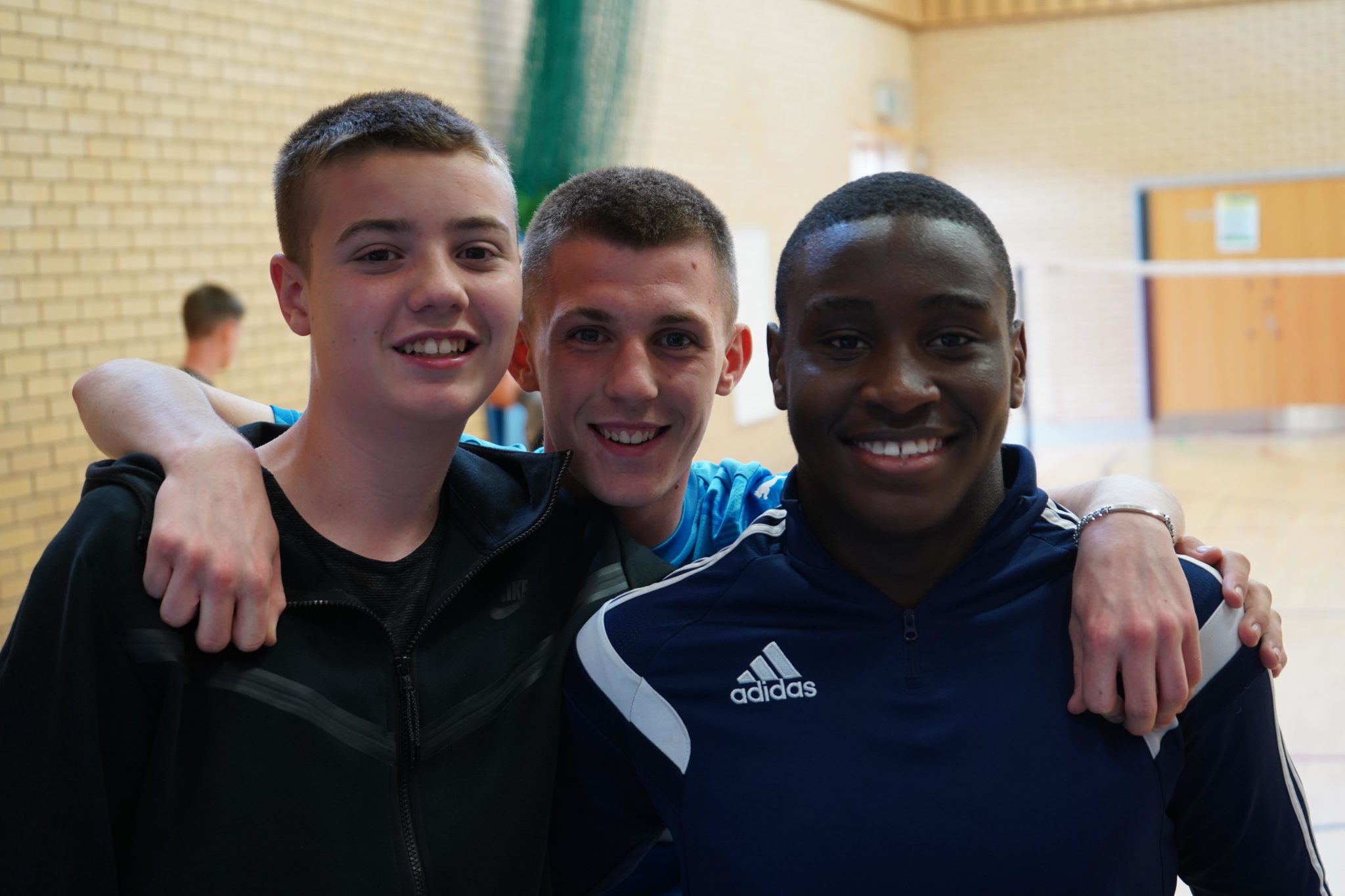Imagine A Man: Building positive masculinity with young people
Overview

The programme has been produced by YouthLink Scotland, the national agency for youth work, and is all about building positive masculinity with young people in the midst of what is being described as Scotland’s ‘crisis of masculinity’.
The launch of the programme and its comprehensive education resources follows on from research by No Knives, Better Lives which explored what it was like to be a boy or young man in Scotland today on three key themes:
- What are the stereotypes and expectations about being a boy or young man in Scotland?
- How prevalent is violence and risk-taking behaviour amongst boys and young men?
- What does an ‘ideal’ future look like for boys and young men in Scotland?
Approach
The results of the research from the first year of ‘Imagine a Man’ provided a broad breadth of understanding of what it was like to be a boy or a young man living in Scotland. The second year aimed at providing more depth to our understanding, with a particular emphasis on what exactly does ‘positive masculinity’ mean to young people.
Three youth groups based in Dundee, Glasgow and Shetland were supported to conduct research on what positive masculinity means in their schools and communities.
Police Scotland's PC Scott Menmuir supported the group in Dundee, alongside colleagues from Dundee City Council and NHS Tayside.
PC Scott Menmuir's reflections on involvement with this project
"From my point of view, MENding Mindsets and Imagine A Man has given me a better and more realistic version of what it is like growing up as a young person and young man in Scotland. It has all been about the young men rather than police and adults assuming that we know what young people are happy and unhappy about. By being part of the group, the adults involved created and strengthened the positive relationships with the young people. By the end of the year, we were adults who were friends and hopefully role models rather than only 'professionals'.
Whilst the vast majority of issues affecting young people are by and large positive, it is important to understand that there are adverse pressures for young men and, whilst most young men appear to have the knowledge in how to overcome these issues, they are looking for positive adult role models in order to overcome some of the situations. We must also acknowledge that no one young person is the same as the next and support needs to look different to meet their individual needs.
I hope that my involvement with the group has provided the young guys with a positive version of what the police should be, and at the same time, given them an adult they can turn to when things are tough. The issues which were most obvious for our group were poor mental health, alcohol, peer pressure and the need for more men as positive role models; I now have a better understanding of what these issues mean to the group as it has come from them directly.
As an adult and a Police Officer, the last year has opened my eyes to what we should continue to do better. Positive adult relationships and role modelling are vital and need to be sustained. Engagement with young people does reap its rewards. From a personal point of view, I hope that I am Scott who so happens to be a Police Officer rather than someone a young person would not normally approach.
Safe and brave spaces are important for young men in whatever form they take. It allows young men to open up and be honest and emotional and not keep issues to themselves.
I am very proud to be part of the group and I've thoroughly enjoyed working with this amazing group of young men and their adult supporters."

Impact and learning
All three areas found that although boys and young men demonstrated a willingness to talk about their feelings, they found it difficult because of a lack of space or relevant people willing to create and facilitate these conversations. There was also a distinct lack of positive role models that boys and young men could identify with.
Growing up without these discussions and where antisocial behaviour as the cultural norm at home and in the community, is where things get much worse for boys and young men. In what has been termed a ‘crisis of masculinity’ the outcomes for men can be starkly in contrast to those of women.
- Men in deprived areas are 10 times more at risk of suicide than those in affluent areas
- Suicide is the biggest killer of men under 45 in the UK
- Three-quarters of all suicides are male
- 43% of men admit to feeling worried or low
- 10% of men admit to having suicidal thoughts
- 89% of convictions for handling offensive weapons are men
- 75% of the victims of violence are men
- Boys have had worse exam results than girls for 30 years
- Men make up 95% of the prison population.
These statistics show that men and boys are disproportionately affected by issues such as mental health, violence, and poverty, and that a new approach is needed to address harmful masculinity and promote positive role models and behaviours.
Rather than demonising boys and young men as “toxic,” Imagine a Man is promoting positive masculinity as a way to give boys and young men a vision to believe in and a language to express themselves and their aspirations. The programme aims to create a space where boys and young men can learn about empathy, caring, humour, and strength in a supportive environment. It also calls for more research into the impact of positive masculinity on male behaviour.
Resources
YouthLink Scotland, through its 'No Knives Better Lives' initiative have developed a learning package that is available to everyone interested for free, alongside a suite of other learning packages. There is also a Toolkit to support you in delivering activities with boys and young men.
Access free learning materials
These training courses help practitioners to engage young people in responses to youth violence in their communities, while keeping up to date with policy, research and best practice.
Download the Toolkit
The Toolkit is available for anyone to download and explore.
More information
For more information, please visit the YouthLink Scotland website.
Areas
- All Areas
Audiences
- Anyone from any background
Interests
- Case study


Share
Share on Twitter Share on Facebook